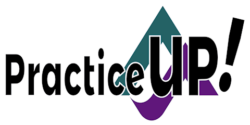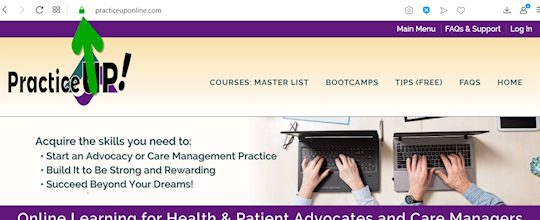… Everywhere a hacker, hacker!
And if you think you and your practice aren’t affected by hackers, there is one way you could be, without even realizing it.
Hackers are experts at getting inside website code, and they do it constantly. In fact, on any given day, among PracticeUP! websites and sister websites, hacking attempts are made hundreds of times EACH DAY.
Hackers are typically trying to accomplish a few things:
- Steal credit card information.
- Steal identity information including not just names, phone numbers, and addresses, but email addresses, passwords, and answers to security question answers (like “your mother’s maiden name”).
- Inject code into a site so the site links to malicious websites that will steal these sorts of information.
- Inject malicious code called keyloggers into a site which steal personal information from forms or purchases as they are being made.
- Change information on a site for other nefarious reasons like ruining reputations.
- … and others.
Until now, the common wisdom among those who offer websites with no forms or products to sell has been that hackers would never bother them because – what did they offer that hackers would care about?
But today, in almost 2020, that wisdom has taken a hit.
Today, in almost 2020, the website landscape has changed, and the ASSUMPTION is that hackers will get into your site, no matter whether you think they would ever care, or could ever find information worth stealing. It no longer matters whether you collect information.
So who makes that assumption? And why DOES that assumption matter to you?
Because that assumption is being made by Google, and unless you take steps to protect your site AND ITS VISITORS, Google will penalize you. As follows:
A major step you can take to protect your site and its visitors is to be sure it’s set up with something called SSL, making it a “secure site.” SSL stands for “Secure Socket Layer” and that means that any exchange between your site any any computer or device that visits your site is encrypted, rendering any hack to your site as useless. Hackers can’t read encrypted data.
 Here is how it will affect your practice: No matter whether a hacker ever gets anywhere near your site, if your site isn’t secure, and isn’t set up with SSL, then Google will penalize your site in search engines. You will no longer show up in searches! Of course, that can impact on a patient or caregiver’s ability to find you. And if they don’t find you, it can have a horrible impact on their quality or quantity of life.
Here is how it will affect your practice: No matter whether a hacker ever gets anywhere near your site, if your site isn’t secure, and isn’t set up with SSL, then Google will penalize your site in search engines. You will no longer show up in searches! Of course, that can impact on a patient or caregiver’s ability to find you. And if they don’t find you, it can have a horrible impact on their quality or quantity of life.
The easiest way to tell whether your site is considered to be secure by Google’s standards, is to look for the padlock next to your web address using any browser (see the image above). In some browsers the padlock may be green, or it may not. As long as it looks “locked” then the site is protected by SSL. Usually a site is secure, the address will begin with “httpS” instead of just “http” – but there are ways of spoofing that, so it’s not tried and true.
What should you do if you find out your website isn’t secure? Contact your hosting company and ask how you can get an SSL Certificate, or security certificate. If you work with a web developer, ask him or her to handle it for you. It may or may not cost you money to add SSL to your site; different hosts handle security certificates differently.
Whatever you do – do NOT ignore this advice. Your site needs to be found! So check your site’s security immediately.
Like PUP! TIPS?
Subscribe to find a new tip in your inbox twice a month! Sign Up for TIPS
Sign Up for TIPS

